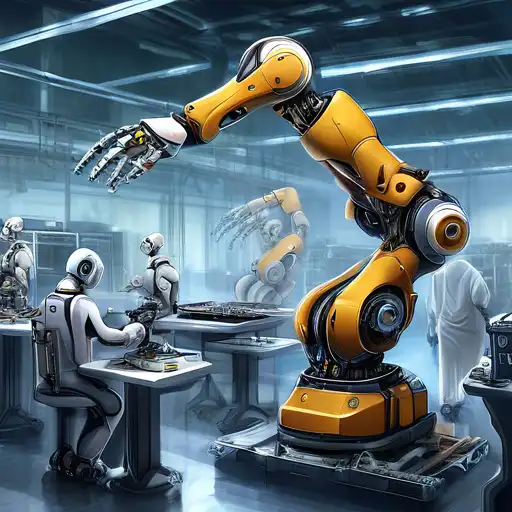The Revolutionary Impact of Robotics on Modern Manufacturing
In the ever-evolving landscape of manufacturing, robotics has emerged as a game-changer, revolutionizing how products are designed, produced, and delivered. This transformation is not just about automating repetitive tasks but about redefining efficiency, precision, and scalability in manufacturing processes.
Enhancing Efficiency and Productivity
Robotics in manufacturing has significantly boosted efficiency and productivity. Robots, with their ability to work 24/7 without fatigue, have minimized downtime and maximized output. For instance, in automotive manufacturing, robots can assemble parts with precision and speed unmatched by human labor, leading to faster production times and higher quality products.
Improving Safety and Reducing Risks
Another critical advantage of robotics is the improvement in workplace safety. By taking over dangerous tasks such as welding, painting, or handling hazardous materials, robots have reduced the risk of injuries and health issues among workers. This not only ensures a safer work environment but also reduces liability and insurance costs for manufacturers.
Customization and Flexibility
With advancements in robotics, manufacturers can now offer greater customization and flexibility in their products. Robots can be quickly reprogrammed to switch between different tasks or products, allowing manufacturers to respond swiftly to changing market demands. This agility is crucial in today's fast-paced consumer market, where personalization and speed to market are key competitive advantages.
Challenges and Considerations
Despite the numerous benefits, the integration of robotics into manufacturing is not without challenges. The initial investment in robotics technology can be substantial, and there is a need for skilled personnel to operate and maintain these systems. Additionally, concerns about job displacement have sparked debates on the future of human labor in manufacturing. However, many argue that robotics will create new opportunities for workers to upskill and engage in more complex and rewarding tasks.
For more insights into how technology is shaping industries, explore our technology trends section.
Looking Ahead: The Future of Robotics in Manufacturing
The future of robotics in manufacturing looks promising, with continuous innovations such as collaborative robots (cobots), artificial intelligence (AI), and the Internet of Things (IoT) further enhancing capabilities. These technologies promise to make manufacturing more intelligent, efficient, and adaptable, paving the way for a new era of industrial revolution.
As we stand on the brink of this transformative phase, it's clear that robotics will continue to play a pivotal role in shaping the future of manufacturing. Embracing these changes and investing in the necessary skills and technologies will be key for manufacturers aiming to stay competitive in the global market.
Discover more about the latest in manufacturing innovations in our manufacturing insights.
